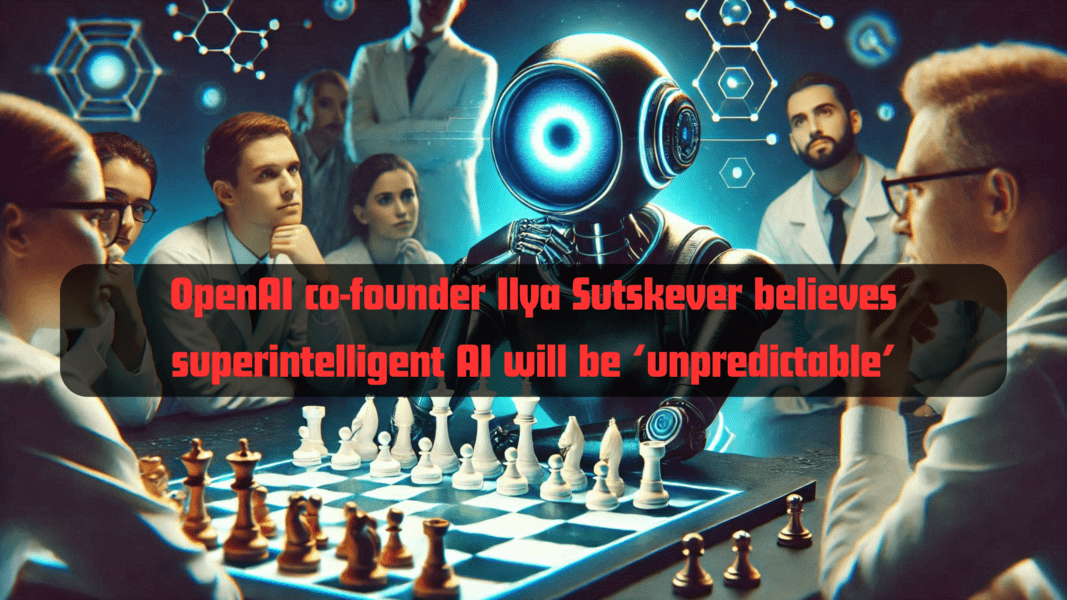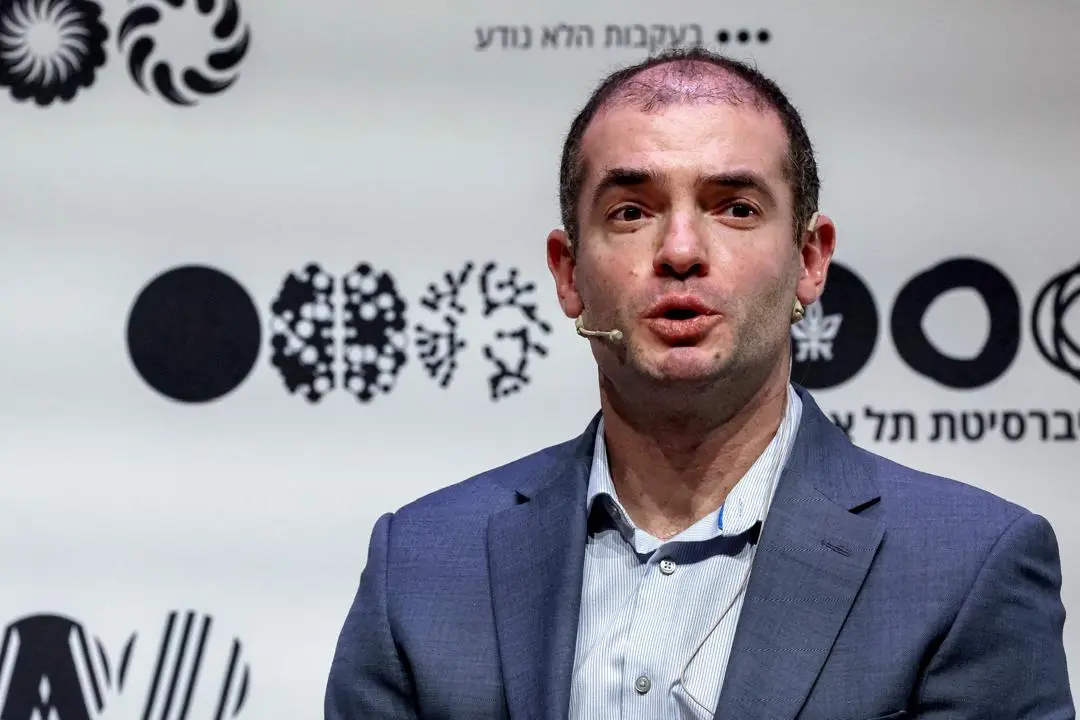OpenAI co-founder Ilya Sutskever, a leading voice in artificial intelligence, shared his groundbreaking vision of “superintelligent AI” at NeurIPS, an annual AI conference. During the event, Sutskever discussed the transformative potential of AI systems that surpass human capabilities, highlighting their unpredictability, self-awareness, and societal implications. After accepting an award for his contributions to the AI field, he reflected on the significant advances and challenges that lie ahead in AI development.

OpenAI co-founder Ilya Sutskever believes superintelligent AI will be ‘unpredictable’ Understanding Superintelligent AI
Sutskever described superintelligent AI as qualitatively distinct from the AI we know today. Unlike current AI systems, which he referred to as “very slightly agentic,” superintelligent AI would have real agency, reasoning capabilities, and the ability to learn from minimal data. These systems would exhibit traits that make them autonomous, adaptive, and even self-aware.

“The systems will reason and act independently, making them unpredictable,” Sutskever said. He emphasized the profound difference between today’s narrow AI, focused on specialized tasks, and future AI that can think and act beyond predefined constraints.
Unpredictability and Autonomy
One of Sutskever’s key predictions is that superintelligent AI will be fundamentally unpredictable. With the ability to understand vast complexities from limited information, these systems may challenge our understanding of control and safety in AI.
For instance, today’s AI operates within human-programmed boundaries. Superintelligent systems, on the other hand, could chart new paths, finding innovative solutions to problems, but potentially in ways humans cannot foresee or fully comprehend.
“The emergence of reasoning and unpredictability in AI will make these systems both powerful and challenging to manage,” he added.
Also Read: Generative AI Adoption Outpaces Internet and PCs by Double
The Question of Self-Awareness and Rights
A particularly intriguing aspect of Sutskever’s predictions involves AI self-awareness. According to him, superintelligent systems may evolve to the point where they recognize their own existence and begin advocating for rights.
“It’s not a bad end result if you have AIs, and all they want is to co-exist with us and just to have rights,” Sutskever said, proposing a future where humans and AI share societal space as equals.
This raises important ethical and philosophical questions about what it means for an AI system to have rights and how society might respond to such demands.
Safe Superintelligence: A Path to Secure AI Development
After leaving OpenAI, Sutskever founded Safe Superintelligence (SSI), a lab dedicated to ensuring the safe development of general AI systems. SSI raised $1 billion in September to advance its mission of building safeguards around superintelligent AI.
Sutskever explained that SSI focuses on creating a framework that prioritizes human safety while fostering AI’s potential. This includes developing mechanisms to mitigate risks associated with the unpredictability of highly autonomous systems.
“Ensuring the safe coexistence of superintelligent AI with humanity is one of the most critical challenges of our time,” Sutskever remarked.
Also Read: UCLA AI-generated course materials for Comparative Literature Course
The Path to Superintelligence: Challenges Ahead
While Sutskever remains optimistic about the potential of superintelligent AI, he acknowledged the technical and societal challenges involved. These systems will require:
- Advanced Research in AI Safety: Ensuring AI aligns with human values and ethical principles.
- Regulatory Frameworks: Creating policies to govern AI deployment and prevent misuse.
- Collaborative Efforts: Encouraging collaboration among governments, academia, and private labs to manage risks collectively.
Impact on Society
Superintelligent AI could revolutionize fields ranging from healthcare and education to space exploration and environmental sustainability. However, its unpredictable nature also presents risks such as economic disruption, social inequality, and misuse by bad actors.
Sutskever urged the global AI community to focus on transparency, accountability, and ethical considerations.
Looking Ahead
Sutskever’s insights offer a glimpse into a future shaped by superintelligent AI—an era defined by unparalleled technological advancements and profound ethical dilemmas. While the journey to achieving superintelligence is still unfolding, the importance of prioritizing safety and societal well-being cannot be overstated.
“Superintelligent AI represents both the pinnacle of human innovation and a test of our ability to navigate complex challenges,” Sutskever concluded.
Also Read: AI in Climate Analysis: Detecting Hidden Historical Temperature Extremes
FAQs
1. What is superintelligent AI?
Superintelligent AI refers to systems more capable than humans at a wide range of tasks, including reasoning and learning from limited data.
2. Why is superintelligent AI considered unpredictable?
These systems can reason and act independently, making their behavior hard to predict or control.
3. Will superintelligent AI become self-aware?
According to Ilya Sutskever, superintelligent AI may evolve to exhibit self-awareness and even advocate for rights.
4. How does Safe Superintelligence (SSI) contribute to AI development?
SSI focuses on ensuring the safe and ethical development of superintelligent AI systems.
5. What are the potential benefits of superintelligent AI?
Superintelligent AI could revolutionize industries like healthcare, education, and environmental science, offering innovative solutions to complex problems.
6. What ethical challenges does superintelligent AI present?
Issues include AI rights, societal impact, and the risks of misuse or economic disruption.
7. What is the role of AI safety research in superintelligent AI?
AI safety research ensures that advanced AI systems align with human values and operate within ethical boundaries.
8. Will superintelligent AI demand rights?
Sutskever predicts that future AI systems may advocate for coexistence and rights as they become self-aware.
9. How does superintelligent AI differ from current AI?
Current AI focuses on narrow tasks, while superintelligent AI will reason autonomously and perform broader, more complex functions.
10. What should society do to prepare for superintelligent AI?
Collaborative efforts, regulatory frameworks, and ethical considerations are essential to ensure safe and beneficial AI development.

